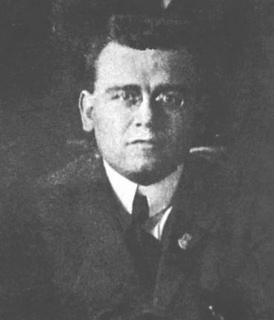A Quote by Ludwig von Mises
Under capitalism the common man enjoys amenities which in ages gone by were unknown and therefore inaccessible even to the richest people.
Quote Topics
Related Quotes
Under capitalism the common man enjoys amenities which in ages gone by were unknown and therefore inaccessible even to the richest people. But, of course, these motorcars, television sets and refrigerators do not make a man happy. In the instant in which he acquires them, he may feel happier than he did before. But as soon as some of his wishes are satisfied, new wishes spring up. Such is human nature.
Capitalism is essentially a system of mass production for the satisfaction of the needs of the masses. It pours a horn of plenty upon the common man. It has raised the average standard of living to a height never dreamed of in earlier ages. It has made accessible to millions of people enjoyments which a few generations ago were only within the reach of a small élite.
This harmony that human intelligence believes it discovers in nature - does it exist apart from that intelligence? No, without doubt, a reality completely independent of the spirit which conceives it, sees it or feels it, is an impossibility. A world so exterior as that, even if it existed, would be forever inaccessible to us. But what we call objective reality is, in the last analysis, that which is common to several thinking beings, and could be common to all; this common part, we will see, can be nothing but the harmony expressed by mathematical laws.
Capitalism had arisen through the misuse and exaggeration of certain rights, notably the right of property - the basis of economic freedom - and the right of contract, which is one of the main functions of economic freedom. Therefore, even under Capitalism, so long as the old principles were remembered it was possible to recall the principles whereby Society had once been sane and well ordered.
The moral justification of capitalism does not lie in the altruist claim that it represents the best way to achieve 'the common good.' It is true that capitalism does -- if that catch-phrase has any meaning -- but this is merely a secondary consequence. The moral justification for capitalism lies in the fact that it is the only system consonant with man's rational nature, that it protects man's survival qua man, and that its ruling principle is: justice
Capitalism is based on the principle that everything has to be privately owned; it can't be held in common. There is even a dogma, which is today called, the "tragedy of the commons" which holds that if things are held in common they are going to be destroyed. If they're privatized, like you give them to Bechtel or Monsanto or ExxonMobil, then they'll be preserved because that's the capitalist's religion.
When profits are pursued by geographic interchange of goods, so that commerce for profit becomes the central mechanism of the system, we usually call it "commercial capitalism." In such a system goods are conveyed from ares where they are more common (and therefore cheaper) to areas where they are less common (and therefore less cheap). This process leads to regional specialization and to division of labor, both in agricultural production and in handicrafts.
There is a kind of grandeur and respect which the meanest and most insignificant part of mankind endeavor to procure in the little circle of their friends and acquaintance. The poorest mechanic, nay, the man who lives upon common alms, gets him his set of admirers, and delights in that superiority which he enjoys over those who are in some respects beneath him. This ambition, which is natural to the soul of man, might, methinks, receive a very happy turn; and, if it were rightly directed, contribute as much to a person's advantage, as it generally does to his uneasiness and disquiet.
































